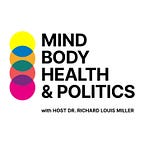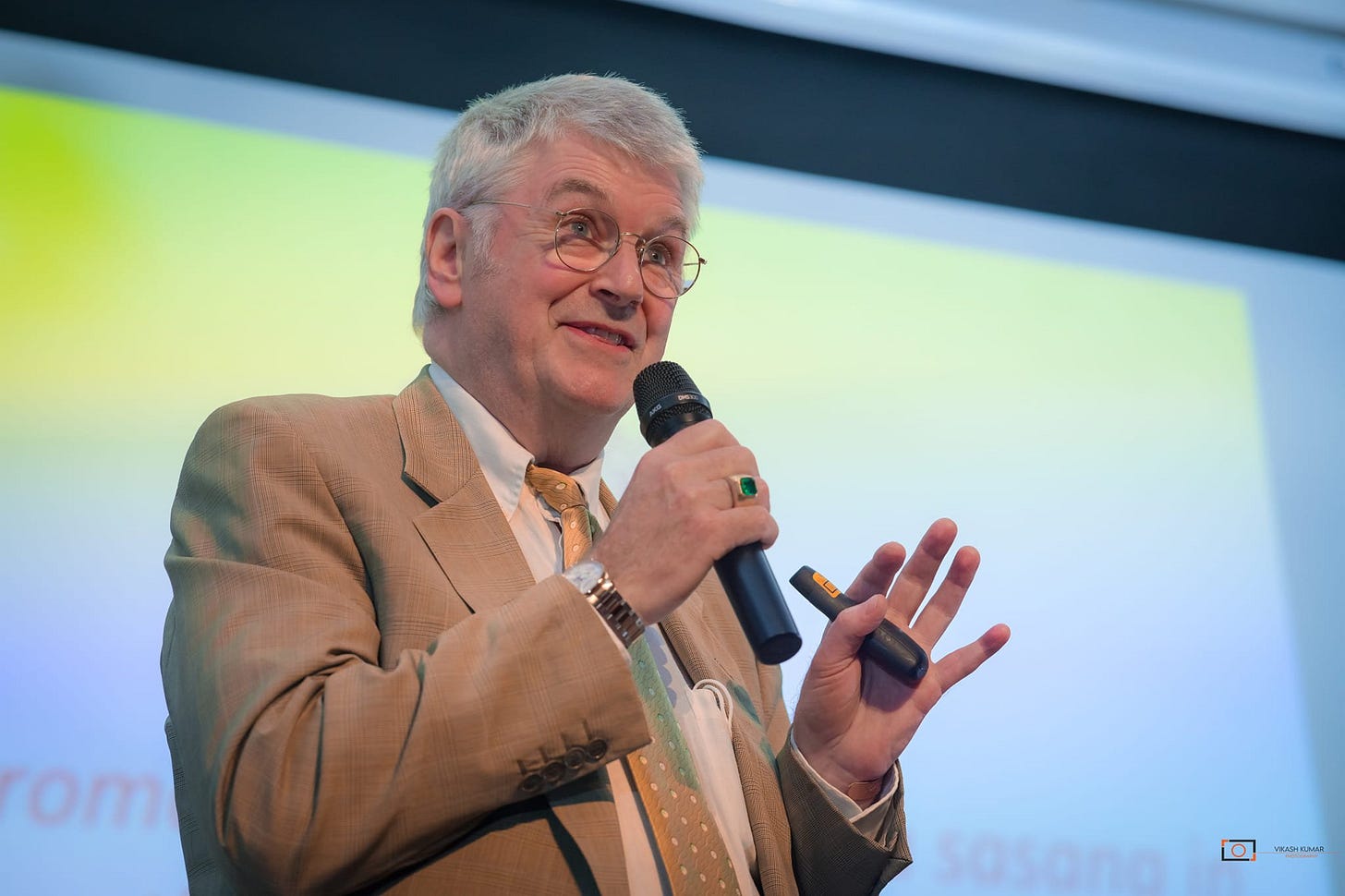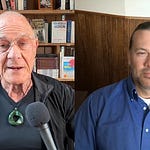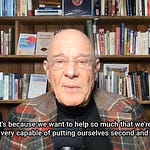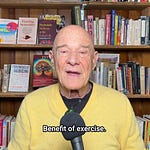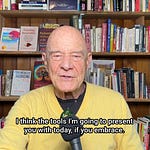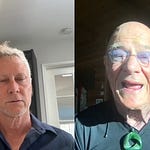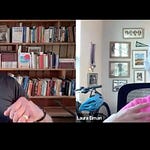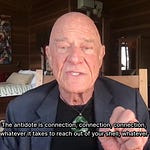Dear Listener,
When I see a book claiming you can meditate in just minutes a day, I'm usually skeptical. It often sounds too good to be true. But Dr. Richard Dixey's new book Three Minutes a Day: A Fourteen Week Course to Learn Meditation and Transform Your Life is different.
As a research scientist with advanced degrees in biophysics, Richard understands the science behind attention and awareness. Though steeped in Buddhist teachings, he distills meditation into a universal human skill we urgently need to cultivate. If anyone can deliver profound results in short periods, it's Richard.
In our increasingly distracted modern lives, most of us suffer from what Richard calls "reflexive reactivity." Our attention is diverted in a thousand little ways, and we react mechanically based on engrained habits and biases rather than responding mindfully. As Richard explains, attention is crucial for reflexive reactivity. An advertisement is specifically created to grab our attention. With the advent of mobile phones and devices, our attention is constantly being diverted in various directions.
“It's exhausting,” says Richard, “And modernity is getting more and more exhausting."
This perpetual reactivity leaves us drained, anxious, and disconnected from ourselves and each other.
Yet through short but focused meditation exercises, Richard says we can stabilize our attention. By repeatedly bringing awareness back to a simple object like the breath, we build the capacity to witness our reactions rather than get swept away by them.
As he puts it:
"What you really want is to see reactivity itself as an object of cognition, something you can actually observe...Just being less reactive is a major benefit of meditation practice."
In only minutes a day, we can cultivate the clarity and responsiveness that our overloaded lives lack. We can recover our core humanity, which Richard describes beautifully:
"Your humanity is not the next thing you buy on Apple. It is your senses, thoughts, and clarity...If you learn about them, you transform all of your experience."
Three Minutes a Day makes this transformative practice accessible, with short daily exercises anyone can fit in. The book distills a lifetime of study into a simple but profound course.
Tune into my conversation with Richard Dixey, and please learn from his real-time demonstration of how to meditate.
Golden light,
Dr. Richard Louis Miller
Links and Resources
Richard Dixey’s Facebook
Richard Dixey’s Website
Richard Dixey’s Book “Three Minutes a Day: A Fourteen-Week Course to Learn Meditation and Transform Your Life”
Thomas Nagel's philosophical piece "What Is It Like To Be A Bat?"
Show Notes
Welcome and Overview of Guest (0:00 - 2:00)
Introduction of Dr. Richard Dixey, biophysicist and Buddhist priest
His book "3 Minutes a Day"
What is Meditation and Why It's Valuable (2:00 - 9:00)
Meditation as a life skill like reading and writing
Seeing our perceptual construct and conditioning
Becoming less reactive
Reflexive Reactivity Explained (9:00 - 19:00)
How we construct a map of the world through our senses, thoughts, experiences
The problem of reflexive reactivity and getting pulled by our reactions
Need to understand the process that triggers reactivity
A Live 3-Minute Meditation Demo (19:00 - 22:00)
Feeling the breath at the tip of the nose
Developing stable attention through savouring
The Limits of Describing Experiences in Words (22:00 - 34:00)
Words point to but cannot replace actual experiences
Need meditation to go beyond the "finger pointing at the moon"
Recovering Your Innate Clarity (34:00 - 43:00)
Seeing your constructed map without being trapped in it
Achieving beginner's mind, seeing things afresh
The Reality Our Senses Construct (43:00 - 53:00)
Scientific discoveries are inferences about reality, not reality itself
But our actual experience is known directly through the senses
Humanity's Shared Basic Goodness (53:00 - 55:00)
Most people are good, cooperative tribal animals
A few predators can mislead the many into bad acts
Meditation as a Path to Freedom (55:00 - 1:03:00)
The lost and confused can rediscover their innate intelligence
Cognitive freedom beyond reaction opens creativity
The Primacy of Direct Experience (1:03:00 - 1:11:00)
No words or representations convey the actual feeling
Knowing your own experience transforms everything
Seeking Psychedelic Testimonials: The Good, the Bad, and the Ugly.
We are currently looking for first-hand accounts of adverse effects of psychedelics—from ‘bad trips,’ to unwanted physiological complications, to abusive practices by guides, therapists, and shamans.
The interviews from this series will go into a forthcoming book on the topic—perhaps the first book its kind.
Please contact me if you would like to be interviewed. You can also leave us a voice message to share your story. We will keep your information anonymous unless you tell us otherwise.
NOTE: The podcast is always freely available thanks to our paid subscribers. Please share this post to show your support for transparency. The following transcript distills the key points from this show into a condensed form. It is meant as a reference - listen to the full episode for an accurate rendition of the conversation.
Transcript
Dr. Richard Miller: Welcome to Mind Body Health and Politics. I'm your host, Dr. Richard Louis Miller. The mission of Mind Body Health and Politics is to enhance your physical and emotional well-being and encourage community.
I say encourage community because I believe that human beings are tribal animals, and we thrive the most and are healthiest when we live in community and close contact with one another in small tribes.
Today on Mind Body Health and Politics, I have the privilege of meeting with Dr. Richard Dixey. This is going to be an interesting story for you all, because Dr. Richard Dixey is both a bio-physicist and a Buddhist priest.
Now, I got a copy of his book, called "Three Minutes a Day." I'll put it up on the screen for you. Here it is.
"Three Minutes a Day" is a 14 week course on learning meditation to transform your life. Now, typically when I see something like this come across my screen, a book about how you can meditate in a very short time, I tend to set it aside because I think it’s exaggerated. However, when a biophysicist who’s also a Buddhist priest brings us a book like this, I pay attention.
I am so glad he’s with us today. Welcome to Mind Body Health and Politics, Richard!
Let me know if you would like me to modify the editing for the introduction. I tried to clean up filler words and add light punctuation without changing the voice and message.
What is Meditation and Why It's Valuable
Richard Dixey: Thank you. Great introduction.
Dr. Richard Miller: So glad you got a kick out of my introduction. Tell us about this, I mean, this is a phenomenal thing. You are telling us that we can do 14 weeks in a row of meditation and significantly change our lives. And I want you to know that I started doing it, but I haven't had time to do the whole 14 weeks yet. So with that intro, tell us a little about your new innovation.
Richard Dixey: Okay. It's not really an innovation. But I think it's important to see where I'm coming from here.
To me, meditation is a life skill that goes along with reading and writing. Honestly, I think we should teach reading, writing and meditation in third grade. The question is, why is it a life skill? Why is it such an important skill to develop?
Let's start from basics. The only experience I ever have, you ever have, Albert Einstein ever had - I don't care who you tell me - the only experience they ever had was either one of the five senses, or thoughts and imaginations. Everything else is an inference.
That's to say, from the five senses, thoughts and imaginations, we make a world. For example, we don't see three dimensions, we see two different images, one from each eye. And our brain integrates them together and produces an experience of perspective.
The perspective we see is actually constructed by our brain in exactly the same way what we hear is coming from phase differences from one ear to the other. So we get a sense of space and direction. Our body image is made from stress receptors in our skin, hands and musculature. And that's what creates a body image. The whole thing is an image, an inferential construct.
Now, if we were just a camera, or a recording device, and the construct we made was exactly the way things are, there'd be no issue. The problem is, it isn't.
The construct we make is conditioned, colored, influenced by everything we know and our prior experiences. As a result, the world we see is not actually the way things are. It's the way we construct it to be, which is why people disagree, argue, have fundamental differences of view about the same material.
Dr. Richard Miller: Are you saying that 10 different people look at the same thing, and they're liable to see 10 different things because of what each person brings to it themselves?
Richard Dixey: Sure, what each person thinks it means, etc. Meditation is the skill to see the construct. If you can see the construct, you can have freedom from this fundamental conditioning element, which essentially imprisons us. It is making us prisoners in a model of the world which we don't understand. And if we can't see it, we are fundamentally ignorant of our condition.


